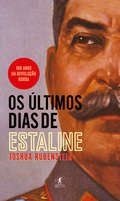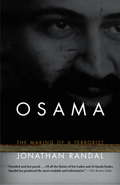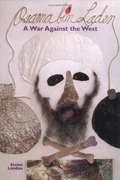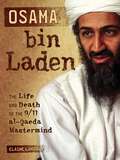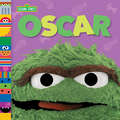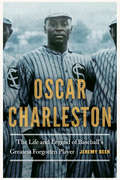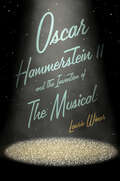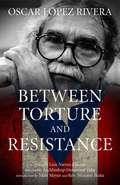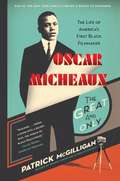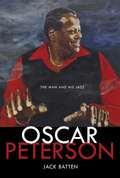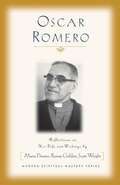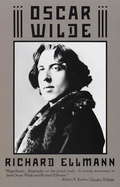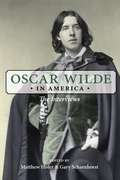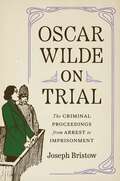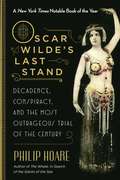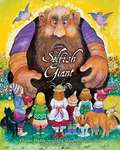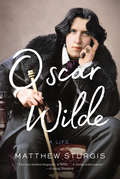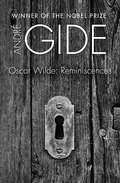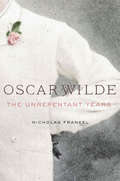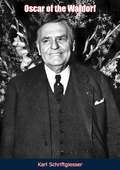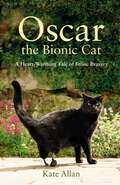- Table View
- List View
Os últimos dias de Estaline
by Joshua RubensteinJoshua Rubenstein lança uma nova luz sobre a acção de Beria, Malenkov, Khrushchev, e outros "camaradas de armas", que bem entenderam o significado da morte iminente do ditador; relata os eventos documentados de testemunhas da sua morte, em comparação com as versões oficiais; os rumores sobre os planos de Estaline para forçar o exílio de judeus soviéticos; as respostas de Eisenhower e o secretário de Estado Dulles aos gestos conciliatórios do Kremlin após a morte de Estaline; e as repercussões da quebra do regime de terror de Estaline. Um relato impressionante dos meses antes e depoisda morte de Estaline e de como o seu desaparecimento modificaria o curso da História do século xx.Joshua Rubenstein leva-nos de volta à segunda metadede 1952, quando ninguém poderia prever um fim ao regime assassino de Estaline. Estava prestes a desafiar o recém-eleito presidente dos Estados Unidos, Dwight Eisenhower, com as forças armadas, enquanto ampliava uma campanha odiosa contra os judeus soviéticos. O colapso repentino de Estaline, que o leva à morte, em Março de 1953, foi tão dramático e misterioso como a sua vida. Não é exagero dizer que a sua morte marcou um ponto de viragem importante no século xx. Os Últimos Dias de Estaline é um envolvente relato dos últimos meses de vida activa do ditador, da vigília no seu leito de morte e da sucessão de acontecimentos internacionais que se seguiram ao seu desaparecimento. Joshua Rubenstein lança uma nova luz sobre a acção de Beria, Malenkov, Khrushchev e outros «camaradas de armas», que bem entenderam o significado da morte iminente do ditador. Relata os eventos documentados por testemunhas da sua morte em comparação com as versões oficiais, os rumores sobre os planos de Estaline para forçar o exílio de judeus soviéticos, as respostas de Eisenhower e do secretário de Estado Dulles aos gestos conciliatórios do Kremlin após a morte de Estaline e as repercussões da quebra do regime de terror do ditador. «Joshua Rubenstein, num relato vívido e vivo, descreve os derradeiros meses de vida de Estaline e o contexto do seu leito de morte, dando conta do verdadeiro significado desse ponto de viragem.» Robbie Millen, The Times «O relato de Joshua Rubenstein sobre a morte de Estaline e as suas consequências imediatas está muito bem feito [...] um livro acessível e fascinante.» Geoffrey Roberts, Irish Times «Intrigante.» David Mikics, Tablet «Um trabalho fascinante.» Amy Lewonstin, Library Journal «O relato extremamente interessante de Joshua Rubenstein sobre os últimos dias de Estaline recorre a memórias pessoais e a novas pesquisas - e transmite o profundo medo inculcado durante os "Anos Negros dos Judeus Soviéticos".» Colin Shindler, Jewish Chronicle «Convincente [...]. Fascinante.» Rosemary Sullivan, The Wall Street Journal «Os últimos dias de Estaline são dramáticos, e Rubenstein faz um relato excelente.» Sheila Fitzpatrick, The Guardian «Um relato denso, arrepiante.» Harvey Blume, The Arts Fuse «Cativante. [...]. Altamente recomendado.» D. J. Dunn, Choice Sobre Os últimos dias de Estaline: «Joshua Rubenstein, num relato vívido e vivo, descreve os derradeiros meses de vida de Estaline e o contexto do seu leito de morte, dando conta do verdadeiro significado desse ponto de viragem.»Robbie Millen, The Times «O relato de Joshua Rubenstein sobre a morte de Estaline e as suas consequências imediatas está muito bem feito [...] um livro acessível e fascinante.»Geoffrey Roberts, Irish Times «Intrigante.»David Mikics, Tablet «Um trabalho fascinante.»Amy Lewonstin, Library Journal «O relato extremamente interessante de Joshua Rubenstein sobre os últimos dias de Estaline recorre a memórias pessoais e a novas pesquisas - e transmiteo
Osama
by Jonathan RandalHow is it possible for one middle-aged Saudi millionaire to threaten the world’s only superpower? This is the question at the center of Jonathan Randal’s riveting, timely account of Osama bin Laden’s role in the rise of terrorism in the Middle East. Randal–a journalist whose experience of the Middle East spans the past forty years–makes clear how Osama’s life epitomizes the fatal collision between twenty-first-century Islam and the West, and he describes the course of Osama’s estrangement from both the West and the Saudi petro-monarchy of which his family is a part. He examines Osama’s terrorist activities before September 11, 2001, and shows us how, after the attack on the World Trade Center, Osama presented the West with something new in the annals of contemporary terrorism: an independently wealthy entrepreneur with a seemingly worldwide following ready to do his bidding. Randal explores the possibility that Osama offered the Saudis his Al-Qaeda forces to drive Saddam Hussein out of Kuwait in 1991; he traces the current sources of Osama’s money; and he tells us why the Iraq war has played into the hands of the terrorists. With his long-maintained sources in the Middle East and his intimate understanding of the region, Randal gives us a clearer explanation than any we have had of the whys and wherefores of the world’s most prominent and feared terrorist.
Osama Bin Laden: A War Against the West
by Elaine LandauPresents biographical information about militant Islamic leader Osama bin Laden, including his role in international terrorism and the beliefs that fuel his actions.
Osama bin Laden: The Life and Death of the 9/11 al-Qaeda Mastermind (Exceptional Biographies For Upper Grades Ser.)
by Elaine LandauNearly ten years after the 9/11 terrorist attacks on the United States, an elite team of U.S. special forces stunned the world with a dramatic and daring feat. Shortly after midnight on May 1, 2011, a U.S. Navy SEALs team stormed a compound in Abbottabad, Pakistan, and killed its most-wanted inhabitant—Osama bin Laden, the mastermind behind al-Qaeda. This militant group planned the September 11, 2001, plane hijackings that killed thousands of people when the planes flew into the World Trade Center in New York City and the Pentagon outside of Washington, D.C. The group is also responsible for other terrorist attacks around the world. As the network's leader, Osama bin Laden became the top target in the United States's War on Terror. In this fascinating account, learn more about the leader of the al-Qaeda network and the U.S. efforts that finally brought the world’s most feared terrorist to justice.
Oscar (Sesame Street Friends)
by Andrea Posner-SanchezMeet your favorite Sesame Street friends in this adorable photographic book!Learn all about Oscar the Grouch in a new Sesame Street board book illustrated with bold, bright photographs. Babies and toddlers will love turning each sturdy page to see what Oscar likes: stinky trash; annoying noises; his pet worm, Slimey; and much more! Sesame Workshop, the nonprofit educational organization behind Sesame Street, aims to help kids grow smarter, stronger, and kinder through its many unique domestic and international initiatives. These projects cover a wide array of topics for families around the world. Sesame Street is the most trusted name in early learning.
Oscar Charleston: The Life and Legend of Baseball's Greatest Forgotten Player
by Jeremy BeerBuck O&’Neil once described him as &“Ty Cobb, Babe Ruth, and Tris Speaker rolled into one.&” Among experts he is regarded as the best player in Negro Leagues history. During his prime he became a legend in Cuba and one of black America&’s most popular figures. Yet even among serious sports fans, Oscar Charleston is virtually unknown today. In a long career spanning from 1915 to 1954, Charleston played against, managed, befriended, and occasionally fought men such as Lou Gehrig, Jimmie Foxx, Lefty Grove, Satchel Paige, Josh Gibson, Jesse Owens, Roy Campanella, and Branch Rickey. He displayed tremendous power, speed, and defensive instincts along with a fierce intelligence and commitment to his craft. Charleston&’s competitive fire sometimes brought him trouble, but more often it led to victories, championships, and profound respect. While Charleston never played in the Major Leagues, he was a trailblazer who became the first black man to work as a scout for a Major League team when Branch Rickey hired him to evaluate players for the Dodgers in the 1940s. From the mid‑1920s on, he was a player‑manager for several clubs. In 1932 he joined the Pittsburgh Crawfords and would manage the club many consider the finest Negro League team of all time, featuring five future Hall of Famers, including himself, Cool Papa Bell, Josh Gibson, Judy Johnson, and Satchel Paige. Charleston&’s combined record as a player, manager, and scout makes him the most accomplished figure in black baseball history. His mastery of the quintessentially American sport under the conditions of segregation revealed what was possible for black achievement, bringing hope to millions. Oscar Charleston introduces readers to one of America&’s greatest and most fascinating athletes.
Oscar Hammerstein II and the Invention of the Musical
by Laurie WinerA new look at artist Oscar Hammerstein II as a pivotal and underestimated force in the creation of modern American culture You know his work—Show Boat, Oklahoma!, Carousel, The King and I. But you don’t really know Oscar Hammerstein II, the man who, more than anyone else, invented the American musical. Among the most commercially successful artists of his time, he was a fighter for social justice who constantly prodded his audiences to be better than they were. Diving deep into Hammerstein’s life, examining his papers and his lyrics, critic Laurie Winer shows how he orchestrated a collective reimagining of America, urging it forward with a subtly progressive vision of the relationship between country and city, rich and poor, America and the rest of the world. His rejection of bitterness, his openness to strangers, and his optimistic humor shaped not only the musical but the American dream itself. His vision can continue to be a touchstone to this day.
Oscar López Rivera: Between Torture and Resistance
by Desmond Tutu Matt Meyer Osacar Lopez Rivera Luis Nieves Falcón Nozomi Ikuta<p>The life story of Puerto Rican freedom fighter and leader Oscar López Rivera, outlined in this book, is one of courage, valor, and sacrifice. In 1981, Oscar was convicted of seditious conspiracy and other crimes for which he is still imprisoned, making him the longest-held political prisoner in the world. This is the story of his fight for the political independence of Puerto Rico based on letters between him and the renowned lawyer, sociologist, educator, and activist Luis Nieves Falcón. <p>Also included is Oscar’s art, including photography and paintings created in his many years behind bars. Readers will explore his early life as a Latino child growing up in the small towns of Puerto Rico, following him as an adolescent as he and his family move to the big cities of the United States. After serving in Vietnam and earning a Bronze Star, Oscar returned home and worked to improve the quality of life for his people by becoming a community activist, which led to his underground life as a Puerto Rican Nationalist and his subsequent arrest. <p>With a vivid assessment of the ongoing colonial relationship between the United States and Puerto Rico, the book helps to illustrate the sad tale of largely unreported human rights abuses for political prisoners in the United States, but it is also a story of hope and his ongoing struggle for freedom for his people and himself—a hope that there is beauty and strength in resistance.</p>
Oscar Micheaux: The Great and Only
by Patrick McgilliganOscar Micheaux was the Jackie Robinson of film, the black D. W. Griffith: a bigger-than-life American folk hero whose important life story is nearly forgotten today. Now, in a feat of historical investigation and vivid storytelling, one of our greatest film biographers takes on one of the most talented and complex figures in the history of American entertainment. The son of freed slaves, Micheaux grew up in Metropolis, Illinois, then roamed America as a Pullman porter before making his first mark as a homesteader in South Dakota. Disaster and defeat there led him to forge a career publishing a successful series of autobiographical novels. Ever the entrepreneur, when Hollywood failed to bid high enough for film rights to his stories, he answered by forming his own film production company. Going on to produce or direct twenty-two silent and fifteen sound films in his lifetime, Micheaux became the king of the "race cinema" industry at a time when black-produced films had to scrounge for venues in a segregated society. In this groundbreaking new biography, award-winning film historian Patrick McGilligan offers a vivid and fascinating portrait of this little-known pioneer. Part visionary, part raffish Barnum-like showman, Micheaux was both a maverick filmmaker and an inveterate hustler who used every weapon at his disposal to break the color barrier and thrive in a profession he helped to invent. He made a fortune and lost it again, and launched repeated con games that were followed by public arrests and bankruptcies. He eagerly took credit for the work of others-including his unsung-heroine wife. In his desperate later years, he even sunk to plagiarizing his final novel-a discovery McGilligan reveals here for the first time. In this searching exploration, McGilligan tracks down long-lost financial records, unpublished letters, and unmarked pauper's graves, pinpointing Micheaux's birthplace, his tangled personal life, and the circumstances of his tragic death. The result is an epic that bridges a fascinating period in American history, and offers lessons for anyone who would understand the role of black America in forming the culture of our time.
Oscar Peterson: The Man and His Jazz
by Jack BattenCalled the "Maharaja of the keyboard" by Duke Ellington, Oscar Peterson released over 200 recordings, won seven Grammy Awards, received the Order of Canada and is considered to have been one of the greatest jazz pianists of all time. This new biography from award-winning author Jack Batten, promises to tell Oscar Peterson's story in acomplete, compelling and sympathetic way. This is first biography of Oscar Peterson for young people. This book is the story of a black kid from a Montreal ghetto who reached accliam in the great music halls of the world.
Oscar Romero: Reflections on His Life and Writings (Modern Spiritual Masters Series)
by Renny Golden Scott Wright Marie DennisOriginally published on the twentieth anniversary of his death, this volume celebrates the life, spirit and legacy of Oscar Romero, the martyred archbishop of San Salvador.
Oscar Wilde
by Richard EllmannThe biography sensitive to the tragic pattern of the story of a great subject: Oscar Wilde - psychologically and sexually complicated, enormously quotable, central to a alluring cultural world and someone whose life assumed an unbearably dramatic shape.
Oscar Wilde in America: The Interviews
by Oscar Wilde Gary Scharnhorst Matthew HoferBetter known in 1882 as a cultural icon than a serious writer, Oscar Wilde was brought to North America for a major lecture tour on Aestheticism and the decorative arts. With characteristic aplomb, he adopted the role as the ambassador of Aestheticism, and he tried out a number of phrases, ideas, and strategies that ultimately made him famous as a novelist and playwright. This exceptional volume cites all ninety-one of Wilde's interviews and contains transcripts of forty-eight of them, and it also includes his lecture on his travels in America.
Oscar Wilde on Trial: The Criminal Proceedings, from Arrest to Imprisonment (Yale Law Library Series in Legal History and Reference)
by Joseph BristowThe most authoritative account of a pivotal event in legal and cultural history: the trials of Oscar Wilde on charges of &“gross indecency&” Among the most infamous prosecutions of a literary figure in history, the two trials of Oscar Wilde for committing acts of &“gross indecency&” occurred at the height of his fame. After being found guilty, Wilde spent two years in prison, emerged bankrupt, and died in a cheap hotel room in Paris a few years after his release. The trials prompted a new intolerance toward homosexuality: habits of male bonding that were previously seen as innocent were now viewed as a threat, and an association grew in the public mind between gay men and the arts.Oscar Wilde on Trial assembles accounts from a variety of sources, including official and private letters, newspaper accounts, and previously published (but very incomplete) transcripts, to provide the most accurate and authoritative account to date of events that were pivotal in both legal and cultural history.
Oscar Wilde's Last Stand: Decadence, Conspiracy, and the Most Outrageous Trial of the Century
by Philip HoareA New York Times Notable Book of the Year that Sir Ian McKellen called "a shocking tale of heroes and villains-illuminating and upsetting in equal measure.”The first production of Oscar Wilde’s Salomé in 1918, with American exotic dancer Maud Allan dancing lead, ignited a firestorm in London spearheaded by Noel Pemberton Billing, a member of Parliament and self-appointed guardian of family values. Billing attacked Allan in the right-wing newspaper Vigilante as a member of the "Cult of the Clitoris,” a feminine version of the "Cult of the Wilde,” a catchall for the degeneracy and perversion he was convinced had infected the land. He claimed that a black book was in the hands of their enemies the Germans, a book that contained the names of thousands of the British establishment who without doubt were members of the cult. Threat of exposure was costing England the war.Allan sued Billing for libel, and the ensuing trial, brought to life in this authoritative, spellbinding book, held the world in thrall. Was there or was there not a black book? What names did it contain? The trial was both hugely entertaining and deadly serious and raised specters of hysteria, homophobia, and paranoia that, like Oscar Wilde himself, continue to haunt us. As in Wilde’s own trial in 1895, libel was hardly the issue; the fight was for control over the country’s moral compass. In Oscar Wilde’s Last Stand, biographer and historian Philip Hoare gives us the full drama of the Billing trial, gavel to gavel, and brings to life this unique, bizarre, and fascinating event.Skyhorse Publishing, as well as our Arcade imprint, are proud to publish a broad range of books for readers interested in history--books about World War II, the Third Reich, Hitler and his henchmen, the JFK assassination, conspiracies, the American Civil War, the American Revolution, gladiators, Vikings, ancient Rome, medieval times, the old West, and much more. While not every title we publish becomes a New York Times bestseller or a national bestseller, we are committed to books on subjects that are sometimes overlooked and to authors whose work might not otherwise find a home.
Oscar Wilde's The Selfish Giant
by Oscar Wilde Mary Hollingsworth Bill BellAfter seven years, the Giant has nothing left to say to his friend the Cornish ogre, and so he returns home to his castle—only to find that in his absence, the children have been playing in his beautiful garden. At once the selfish Giant builds a high wall to keep the children out of the garden. Winter turns into Spring all over the country—but not in the selfish Giant's garden. Across the country Spring turns into Summer and then to Autumn—but in the selfish Giant's garden, the trees refuse to bloom and the birds refuse to sing; they miss the children. The selfish Giant lies shivering in his large bed while Hail, Snow, North Wind, and Frost dance across the garden. But one morning the Giant hears a beautiful noise—what could it be?An unexpected ending gives the story a poignant, wistful quality, and Bill Bell's dazzling illustrations breathe new life into this classic tale. And adults familiar with Oscar Wilde's work will enjoy seeing this gentler, softer side of Wilde. The Selfish Giant is a beautiful book for parents and children to read together during any season.
Oscar Wilde, His Life and Confessions, Volume 1
by Frank HarrisBiography of Oscar Wilde, the British playwrite.
Oscar Wilde: A Life
by Matthew SturgisThe fullest, most textural, most accurate—most human—account of Oscar Wilde's unique and dazzling life—based on extensive new research and newly discovered materials, from Wilde's personal letters and transcripts of his first trial to newly uncovered papers of his early romantic (and dangerous) escapades and the two-year prison term that shattered his soul and his life."Simply the best modern biography of Wilde." —Evening StandardDrawing on material that has come to light in the past thirty years, including newly discovered letters, documents, first draft notebooks, and the full transcript of the libel trial, Matthew Sturgis meticulously portrays the key events and influences that shaped Oscar Wilde's life, returning the man "to his times, and to the facts," giving us Wilde's own experience as he experienced it.Here, fully and richly portrayed, is Wilde's Irish childhood; a dreamy, aloof boy; a stellar classicist at boarding school; a born entertainer with a talent for comedy and a need for an audience; his years at Oxford, a brilliant undergraduate punctuated by his reckless disregard for authority . . . his arrival in London, in 1878, "already noticeable everywhere" . . . his ten-year marriage to Constance Lloyd, the father of two boys; Constance unwittingly welcoming young men into the household who became Oscar's lovers, and dying in exile at the age of thirty-nine . . . Wilde's development as a playwright. . . becoming the high priest of the aesthetic movement; his successes . . . his celebrity. . . and in later years, his irresistible pull toward another—double—life, in flagrant defiance and disregard of England's strict sodomy laws ("the blackmailer's charter"); the tragic story of his fall that sent him to prison for two years at hard labor, destroying his life and shattering his soul.
Oscar Wilde: Reminiscences
by André GidePersonal recollections from André Gide on a man who profoundly influenced his work—Oscar Wilde André Gide, a towering figure in French letters, draws upon his friendship with Oscar Wilde to sketch a compelling portrait of the tragic, doomed author, both celebrated and shunned in his time. Rather than compile a complete biography, Gide invites us to discover Wilde as he did—from their first meeting in 1891 to their final parting just two years before Wilde&’s death—all told through Gide&’s sensitive, incomparable prose. Using his notes, recollections, and conversations, Gide illuminates Wilde as a man whose true art was not writing, but living. This ebook features a new introduction by Jeanine Parisier Plottel, selected quotes, and an image gallery.
Oscar Wilde: Reminiscences
by André GidePersonal recollections from André Gide on a man who profoundly influenced his work—Oscar Wilde André Gide, a towering figure in French letters, draws upon his friendship with Oscar Wilde to sketch a compelling portrait of the tragic, doomed author, both celebrated and shunned in his time. Rather than compile a complete biography, Gide invites us to discover Wilde as he did—from their first meeting in 1891 to their final parting just two years before Wilde&’s death—all told through Gide&’s sensitive, incomparable prose. Using his notes, recollections, and conversations, Gide illuminates Wilde as a man whose true art was not writing, but living. This ebook features a new introduction by Jeanine Parisier Plottel, selected quotes, and an image gallery.
Oscar Wilde: The Unrepentant Years
by Nicholas FrankelNicholas Frankel presents a revisionary account of Oscar Wilde’s final years, spent in poverty and exile in Europe following his release from an English prison for the crime of gross indecency between men. Despite repeated setbacks and open hostility, Wilde—unapologetic and even defiant—attempted to rebuild himself as a man, and a man of letters.
Oscar of the Waldorf
by Karl SchriftgiesserThe present volume is the biography of Oscar Tschirky (1866-1943), known throughout the world as Oscar of the Waldorf, who worked as maître d’hôtel of the Waldorf Astoria Hotel in New York City from 1893 to 1943. The book contains many recollections devoted to the Waldorf Astoria Hotel and its founder, George C. Boldt, and his wife, Louise Kehrer Boldt.Richly illustrated throughout with black and white photographs.
Oscar: A Heart-Warming Tale of Feline Bravery
by Kate AllanWhen Kate’s beloved cat, Oscar, is found with both hind legs severed by a combine-harvester, Noel Fitzpatrick, star of Channel 4's The Supervet, agrees to try pioneering surgery to replace his legs with prosthetics. This is the amazing account of a feline destined to become the world’s first bionic cat.
Oscar: A Heart-Warming Tale of Feline Bravery
by Kate AllanWhen Kate’s beloved cat, Oscar, is found with both hind legs severed by a combine-harvester, Noel Fitzpatrick, star of Channel 4's The Supervet, agrees to try pioneering surgery to replace his legs with prosthetics. This is the amazing account of a feline destined to become the world’s first bionic cat.
Osceola: Memories of a Sharecropper's Daughter
by Alan Govenar Shane W. Evans Osceola MaysOsceola Mays was born in East Texas in 1909, the daughter of a sharecropper and the granddaughter of slaves. She survives fear, poverty, and the loss of loved ones by recalling memories of her childhood, and the stories, songs, and poems she learned from her mother and grandmother. Like a patchwork quilt, this collection pieces together Osceola's life into a vivid and profound mosaic. Osceola is a poignant and powerful oral history, a collection that will touch readers' hearts as it informs them of the legacy of slavery and the past conditions of African Americans in the South.
